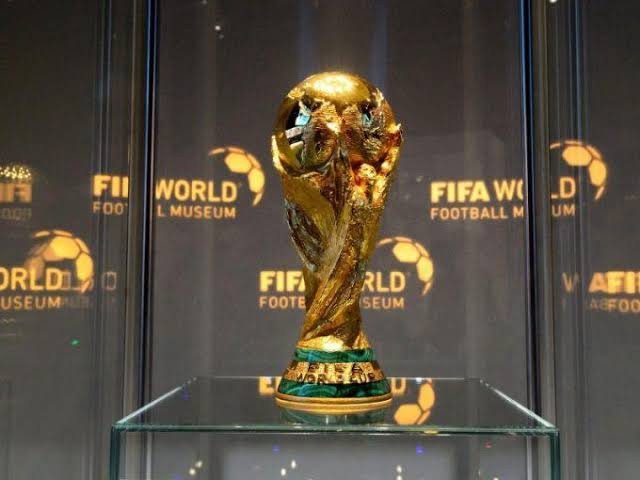Saudi Arabia’s exclusive bid to host 2034 FIFA World Cup

Saudi Arabia has emerged as the solitary bidder for the 2034 FIFA World Cup, as confirmed by FIFA officials. This unexpected development comes as FIFA revealed that Saudi Arabia had submitted the sole “expression of interest” in hosting the prestigious tournament.
The official ratification of this decision is set to take place at the conclusion of the next year, contingent upon Saudi Arabia meeting all the required technical criteria. This announcement marks a departure from the previously announced 2030 World Cup, which is set to be jointly hosted by Spain, Portugal, Morocco, and includes matches in South America.
This decision follows Qatar’s hosting of the first-ever World Cup in the Middle East, where Saudi Arabia’s national team achieved a stunning group stage victory over eventual champions, Argentina. As of now, only initial “expressions of interest” have been submitted.
Once the comprehensive bids for both the 2030 and 2034 World Cups are submitted, FIFA will evaluate them and hold separate congress meetings at the end of 2024 to conduct the official vote. However, with no competing bids in sight for the 2034 event, the lack of suspense raises concerns about the environmental impact of the 2030 World Cup and the compatibility of the 2034 tournament with FIFA’s human rights commitments.
It’s worth noting that Saudi Arabia had initially explored the possibility of jointly bidding for the 2030 World Cup with Egypt and Greece. However, this idea was abandoned, ultimately clearing the path for the tri-continental bid.
Saudi Arabia declared its intention to bid for the 2034 event soon after the procedure was initiated on October 4. Due to FIFA’s continental rotation policy, the bid process was open only to member countries of the Asian and Oceanian confederations, effectively excluding traditional footballing powerhouses.
At one point, Indonesia considered a joint bid with Australia, New Zealand, Malaysia, and Singapore, but later opted to support Saudi Arabia’s bid, as did the Asian Football Confederation. Australia, despite having successfully hosted the Women’s World Cup, withdrew its interest following the confederation’s decision to back Saudi Arabia.
Acquiring the rights to host the World Cup aligns with Crown Prince Mohammed bin Salman’s strategy to position Saudi Arabia at the forefront of the global sports landscape. This move has faced criticism from detractors who argue it may divert international attention from the kingdom’s human rights issues.
Saudi Arabia is already gearing up to host the upcoming Club World Cup and the 2027 Asian Cup. Additionally, it has ventured into various sporting events such as LIV golf, major boxing matches, horse racing, and has attracted top football talents, including Ballon d’Or winners Cristiano Ronaldo and Karim Benzema.
Perhaps the most surprising endeavor is the kingdom’s hosting of the 2029 Asian Winter Games in a futuristic complex under construction in Neom.
However, securing the World Cup presents a monumental challenge, particularly considering the expansion of the tournament to 48 teams starting in 2026. FIFA’s requirements include a minimum of 14 stadiums with capacities ranging from 40,000 to 80,000 seats, along with at least 72 base camps.
Despite its financial capabilities, Saudi Arabia faces scrutiny over its ability to uphold FIFA’s commitment to “respect internationally recognized human rights” during the competition. While environmental sustainability is part of the award procedure, the absence of other contenders may affect its significance.
Steve Cockburn, Amnesty International’s Head of economic and social justice, expressed concerns, stating that “FIFA may have scored an own goal” by having only a single bid for each tournament. He called on FIFA to clarify how it expects hosts to comply with its human rights policies and be ready to halt the bidding process if significant human rights risks are not addressed.
Similarly, Human Rights Watch has called on FIFA to “postpone” the awarding of the 2034 World Cup, claiming that the organization has “failed” to conduct an “ethical, transparent, objective, and impartial” process. This exclusive bid has certainly raised numerous questions about the future of the tournament and Saudi Arabia’s role in international sports.








